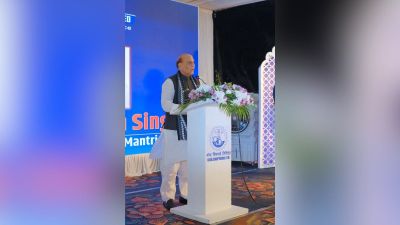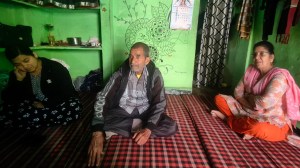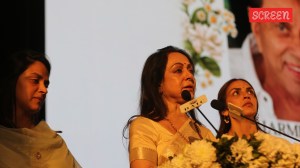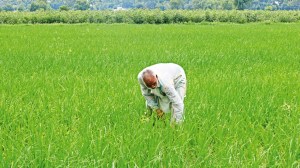Davos meeting 2024: 5 key takeaways
This year, some broad themes dominated proceedings at the World Economic Forum meeting in Davos. Here is what the rich and powerful discussed.
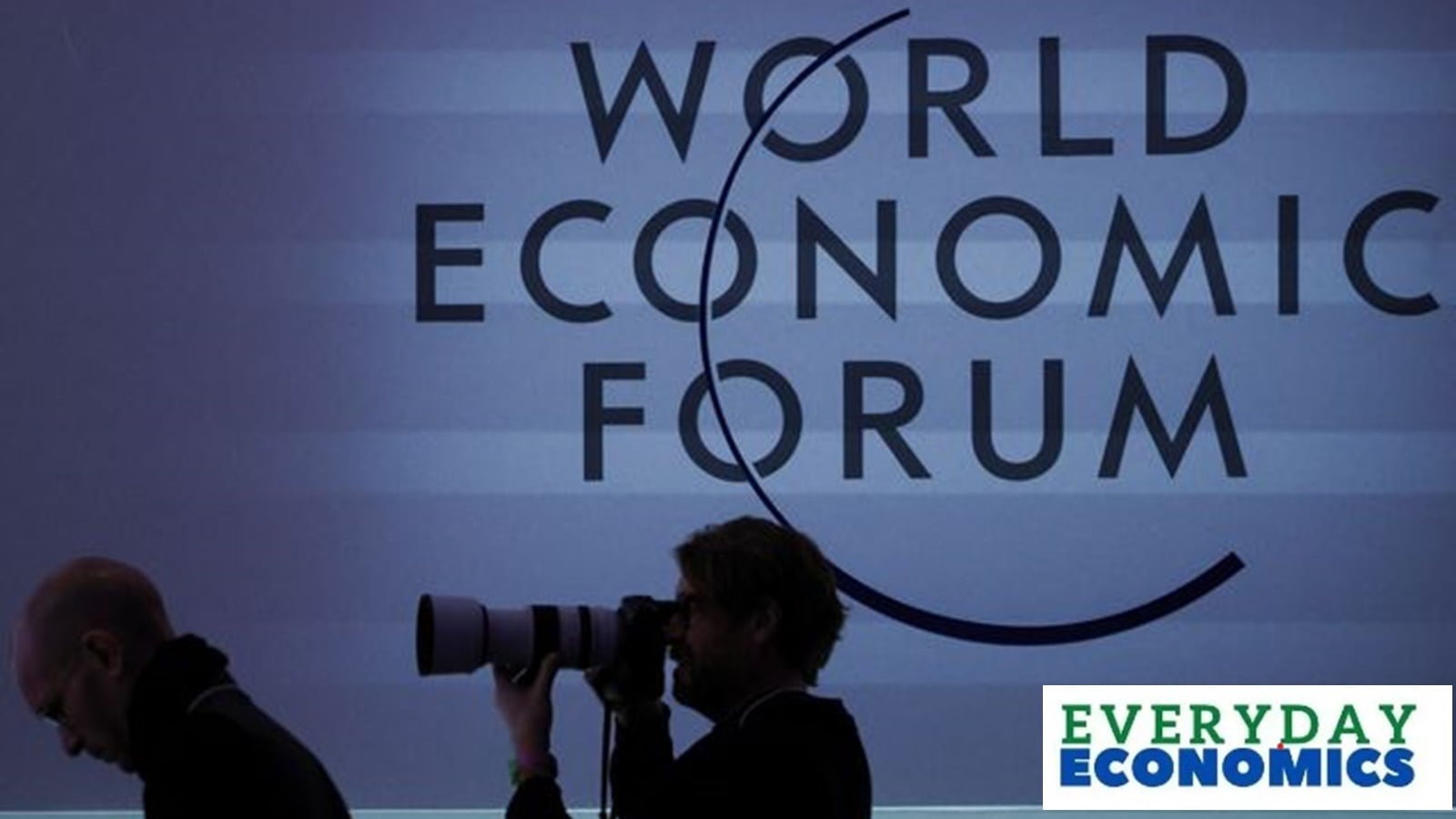 A person takes a photo next to a logo during the 54th annual meeting of the World Economic Forum, in Davos, Switzerland, January 19, 2024. (Photo: Reuters)
A person takes a photo next to a logo during the 54th annual meeting of the World Economic Forum, in Davos, Switzerland, January 19, 2024. (Photo: Reuters)This year’s edition of the World Economic Forum (WEF) annual meeting was held from January 15 to January 19.
Every year, leaders from various fields, such as business, politics, economics, etc., gather in the Swiss town to discuss challenges facing the world and explore the ways forward. The event has faced criticism for its elite and expensive nature, but the Davos summit still remains relevant, if only for the glimpse it offers into how the rich and powerful react to the most pressing issues.
This year, some key themes dominated proceedings at the meeting. Here are the five main takeaways (with a special mention of India).
Artificial Intelligence
The one issue that took centre stage at this year’s WEF meet was Artificial Intelligence (AI). While its many transformational abilities for human welfare were discussed, so were the need for regulation, fear of job losses, the risks of impersonation and misinformation, and the inequalities it can potentially worsen.
The overall mood, however, seemed to be that the positives outweigh the negatives, and human intelligence did not face a major threat from AI. This sentiment was perhaps best encapsulated by Sam Altman, CEO of OpenAI, who until a few months ago was raising warnings of “the risk of extinction from AI”. “Humans know what other humans want. Humans are going to have better tools. We’ve had better tools before, but we’re still very focused on each other,”Altman said in Davos, according to the WEF’s website.
War and uncertainty
Business leaders spoke of the risk posed by a fragile geopolitical situation, wars in the Middle East and Europe, the threats to global supply chains, and the uncertainty around food security. Yet, no plans or roadmaps for peace were offered about the Israel-Gaza violence.
As CNBC said in a report, “Perhaps there are few obvious solutions, or maybe – as multiple conference attendees suggested – many people don’t want to speak out on the conflict in Gaza because they could irritate others or start a rhetorical conflagration.”
Reuters reported that the head of the Palestine Investment Fund estimated at least $15 billion would be needed to rebuild houses in Gaza alone, but Arab states said they would not fund reconstruction unless there was lasting peace.
“We agree that regional peace includes peace for Israel, but that could only happen through peace for the Palestinians through a Palestinian state,” Saudi foreign minister Prince Faisal bin Farhan told a WEF panel.
Climate
The need for businesses to adapt to climate change and for countries to unite for action against it despite differences was another hot topic. Ajay Banga, President, World Bank Group, said, we had an “existential climate crisis”on our hands and “a sense of urgency is our only saviour.” Others spoke about the ultimate benefit businesses will reap from adopting sustainable practices and about the need to allocate resources correctly in the fight against climate change.
Belgian trade unionist Luc Triangle reminded rich countries of their role. “Developed countries have to assist in the financing of climate action in the developing countries because if we don’t do that, this inequality will only grow and you will have winners and you will have losers… Rebuilding trust cannot be limited to only a number of countries. It has to include the whole world,” he said, as quoted by the WEF website.
China’s economy
Facing a slowing economy, China tried to attract more investment from the West, which has witnessed some cooling. At 5.2%, China’s GDP growth in 2023 is still below pre-pandemic levels, and it is battling American attempts to isolate it, as evidenced in the semiconductor trade standoff.
CNBC quoted Ian Bremmer, president and founder of Eurasia Group, as saying, “China is experiencing very significant structural economic challenges. A lot of companies in the West are no longer investing what they used to invest… But even 3%, 4% growth in China is still fairly meaningful for a lot of companies that are attending the World Economic Forum this year.”
And finally, India
An assessment of Davos 2024 by consulting firm McKinsey and Company says, “India is transforming rapidly as one of the fastest growing large economies in the world. When it comes to technology, talent, healthcare, and other areas, its future in 2024—and beyond—is worth paying attention to.”
These sentiments were echoed by industrialist Gautam Adani, who said in a LinkedIn post, “If the first major theme at WEF 24 was about rebuilding trust, the second was about the rise of India.”
India also made its presence felt in ways other than its economic potential. One of the ideas discussed at WEF this year was how investment in women’s health could boost the global economy by $1 trillion annually by 2040. According to the Press Information Bureau (PIB), “One of the key takeaways from the Forum meeting was the announcement of the launch of a Global Good Alliance for Gender Equity and Equality with the support and endorsement by WEF and Government of India. The idea of this alliance emerged from the G20 Leaders’ Declaration and India’s abiding commitment to the cause of women-led development as propounded by Prime Minister Shri Narendra Modi.”
The objective of this Alliance is to bring together global best practices, knowledge sharing and investments in the identified areas of women’s health, education, and enterprise,” the PIB said.
- 01
- 02
- 03
- 04
- 05


